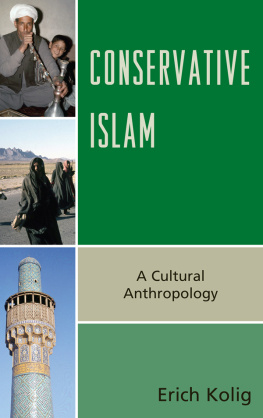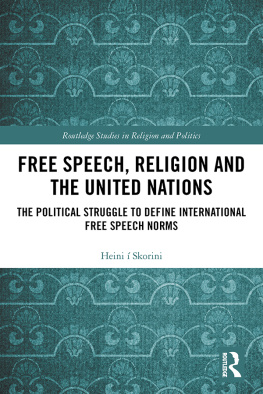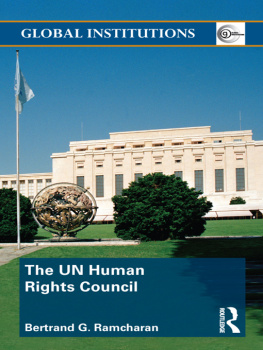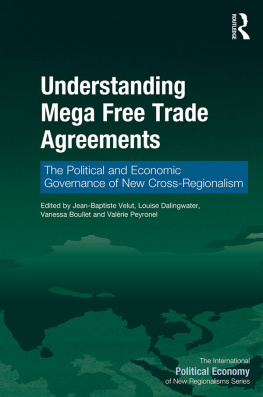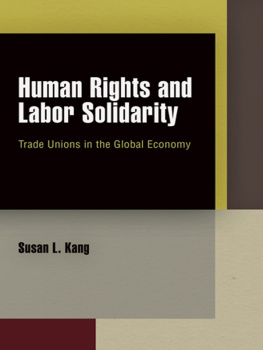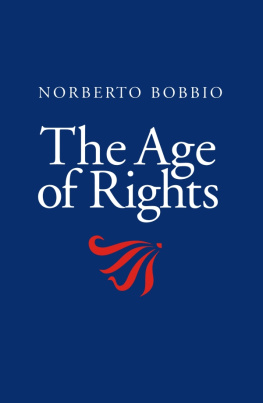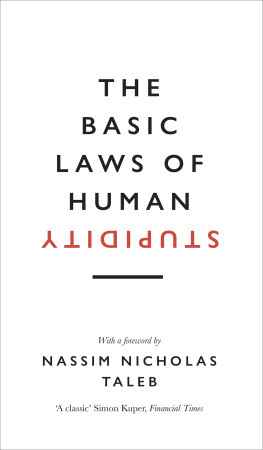Understanding the Past, Navigating the Future
Erich Kolig
Austin Macauley Publishers
2020-09-30
Understanding the Past, Navigating the Future
About the Author
Erich Kolig is an Austrian-New Zealand cultural and social anthropologist who has taught in New Zealand, Austrian and Australian universities. His research spans nearly 50 years and focused on Muslim and Islamic social and religious issues, on Australian Aboriginal culture and many other issues. He is the author and editor of 12 books and numerous scientific papers and book chapters. Now retired, he lives on a small farm outside Dunedin on the South Island of New Zealand.
Dedication
Dedicated to my parents and Nicole
Copyright Information
Erich Kolig (2020)
The right of Erich Kolig to be identified as author of this work has been asserted by him in accordance with section 77 and 78 of the Copyright, Designs and Patents Act 1988.
All rights reserved. No part of this publication may be reproduced, stored in a retrieval system or transmitted in any form or by any means, electronic, mechanical, photocopying, recording or otherwise, without the prior permission of the publishers.
Any person who commits any unauthorised act in relation to this publication may be liable to criminal prosecution and civil claims for damages.
Austin Macauley is committed to publishing works of quality and integrity. In that spirit, we are proud to offer this book to our readers; however, the story, the experiences, and the words are the authors alone.
A CIP catalogue record for this title is available from the British Library.
ISBN 9781528984256 (Paperback)
ISBN 9781528984263 (ePub e-book)
www.austinmacauley.com
First Published (2020)
Austin Macauley Publishers Ltd
25 Canada Square
Canary Wharf
London
E14 5LQ
About This Book and Some Explanations
This book seeks to discuss some of humanitys most important and fundamental cultural values and natural proclivities. In all probability, their expression, realisation, suppression or neglect, will shape the kind of cultural future humankind can achieve. What kind of culture, global or otherwise, can emerge on this basis if globalisation continues on the path we can observe today? Admittedly, this is a long shot. Some experts assume we are going towards a brilliant future with a rich and globally harmonised culture. Others believe the current climate of isolationism and rising nationalism will stifle globalisation, and the promise of cultural harmonisation will be replaced by chronic friction and crisis. Does globalisation, instead of cultural homogenisation, lead into the abyss of culture wars? An even more glum perspective assumes a dystopian future beckons, a cultureless wasteland of rusting heaps of technology, a miserable bunch of a human underclass scraping a living from the detritus of past glory. Brutal chaos, anomie and the rule of intelligent machines await us.
It would be wrong to see globalisation as inevitable. The worldwide rise of nationalism, of cultural borders going up, fighting tooth and nail against globalism, may turn out not to be just a blip in the flow of history. There is no absolutely cogent reason to perceive globalisation in terms of a teleological process, an evolutionary unfolding with pre-determined consequences and an unchangeable goal-directedness. There is no clear empirical evidence for the assumption that what we were experiencing in the second half of the last century up to now is a law-like evolutionary process that extends into the future and brings the world more and more together unless one reads the tea leaves of human history and interprets them imaginatively. Cultural homogenisation, universal integration and globalism are far from being assured outcomes.
The Roman Empire, as an embryonic globalisation project, was creating not only a cohesive political entity but also a super-culture that put its stamp on every region within its political reach. But eventually, it fell apart and history for a long time moved in the opposite direction. In a scientific sense, extrapolating from current or past conditions has to be done with great caution lest one crash-lands in the territory of pure phantasy. Projections into the future have to be declared as what they are: daring conjecture. All we can say with some certainty is that a highly interconnected world, on all levels, is both a safer world and a more dangerous one. What seems to be required is harmonising sharp cultural differences, universalising laws and ethics and creating and maintaining international channels of communication and negotiation.
Literary landmarks of past decades in summa tend to be rather ambiguous and none had any great lasting influence on the behaviour of humanity. Paul Ehrlichs Population Bomb (1968) was digested and soon excreted without much impact. The world population continued to rise exponentially. Alvin Tofflers Future Shock (1970) was the rage among social scientists in the 1970s, but many of his predictions have already turned out to be wrong. The impact of George Orwells dystopian vision offered in his imaginative futuristic novel 1984 (1949) or Aldous Huxleys portrait of the Brave New World (1931) lingers in the minds of literate people, but does not seem to entice any politician to change their views on anything. More recently, Yuval Harari cast a glimpse on the course humankind seems to take in his book 21 lessons for the 21st century (2018). Yet, hope springs eternal, the hope that cultural globalisation may right the wrongs, produce justice, peace and relative harmony among humankind.
I do not try to define culture beyond saying it is more than refined arts, theatre and literature; roughly put, it is language, values, ethics, laws, conventions, traditions, religion, customs, economics, politics, ideology and the blueprint in our mind of social organisation. It ranges from the height of the most sophisticated philosophy to toilet humour graffiti found in indescribable places, and from the heavy burping required by some customs after an excellent meal to the most elaborate church liturgy. By and large, it is everything we know and that motivates us to manifest it from the finest intellectual thought to empirical behaviour and material creations and more. Anything human creativity can come up with. Not only for this reason it would be a fools errand to paint a detailed image of what globalised culture may be like in the future, dystopian or utopian as the case may be. I have no crystal ball, and even if I had one, I would not trust it. And despite being an avid coffee drinker, I see nothing in the suds. Much rather, this book is a collection of basic cultural aspects by no means complete with a view of how they may be traced through the human past, what significance they currently have and how they may play out in the foreseeable future.
Culture is a tangled, amorphous, intractable and far-reaching concept. It is no more than an artificial anthropological, sociological and academic construct and in the culturist sense of the word covers a huge ground. Considering a small selection of cultural aspects, which seem significant or particularly interesting at the present time, may allow an uncertain glimpse as to what direction humanity seems to take. Only some major skeins of some universal validity that may manipulate the future can be considered: such as food supply, population growth, sexuality, religious belief systems and secularisation, gender relations, violence, the idea of freedom and equality, migration and xenophobia and attitudes towards the earths natural environment.


